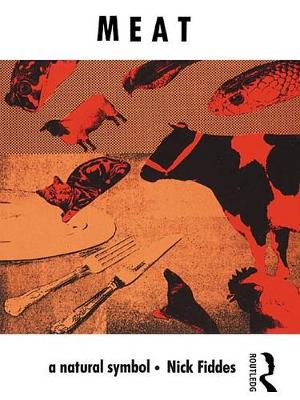Reviewed by celinenyx on
Mr Fiddes has written a broad sociological introduction in Meat, discussing topics ranging from European intellectual thought, as well as using interviews and quantitative statistical data. Meat is a symbol within our culture - it is a sign of prosperity, of control over nature, of mankind's power. The author lays out his argument in a clear manner, never necessarily critiquing meat consumption itself, but rather baring the underlying reasons for why we find meat so important. Although written in the eighties, I found many of his conclusions and observations to be surprisingly contemporary.
My own relationship with meat has been a difficult one, as I have moved from eating meat daily to only eating it once or twice a week, mainly from an environmental perspective. Meat production is inefficient, no matter how you look at it, and it takes away precious resources from countries that need them most. If the entire world ate as much meat as we do in the West, the available farmland would not be able to sustain the population. Meat has inspired me to - again - rethink my stance on meat, and how important it is for myself to keep eating it.
Reading updates
- Started reading
- 28 February, 2018: Finished reading
- 28 February, 2018: Reviewed
